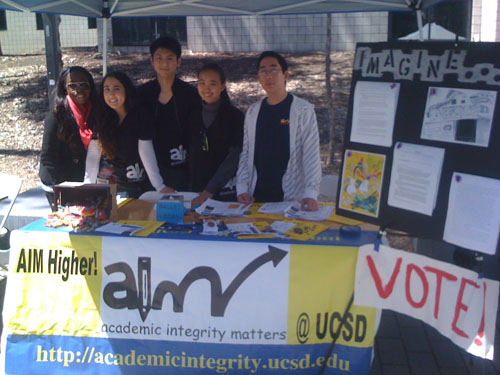
After reading Howard Gardner’s article, Harvard’s Cheating Scandal as a Play in Four Acts, and listening to Dr. Gardner and Dr. Tricia Bertram Gallant on 90.9 WBUR Radio Boston, I was curious to find out more about Dr. Tricia Bertram Gallant’s research on academic integrity. She agreed to answer some of the questions I originally posed in The Global Search for Education: On Cheating. Tricia Bertram Gallant is the author of Academic Integrity in the Twenty-First Century: A Teaching and Learning Imperative, co-author of Cheating in School: What We Know and What We Can Do, and editor of Creating the Ethical Academy: A Systems Approach to Understanding Misconduct & Empowering Change in Higher Education. She is also Director of the Academic Integrity Office at the University of California, San Diego, and member of the International Center for Academic Integrity’s Advisory Council.
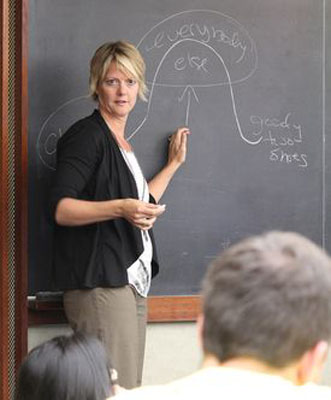
What can be done to better address students compromising ethics as they deal with performance pressure?
It is complex because the problem is shaped by forces emanating from multiple levels of the system and there are things that we need to do at each level. However, I’ll offer two key suggestions here. At the macro levels (society and the educational system), we need to remember the true end goals of education. Our rhetoric, structures and procedures impress that the end goals are high test scores, high grades, and 100% retention and graduation rates (think “No Child Left Behind” and “Race To The Top”). In reality, these “things” only hold power if they are honest symbols of learning, personal growth, character development and professional development. Unfortunately, the symbols have become the goals, and the structures that underlie them accentuate performance pressure and do nothing to discourage misconduct, let alone create healthy ethical environments. At the micro levels (organization and individuals), we also need to create healthy ethical environments that support quality teaching and learning. Even then, students may continue to cheat because they are ill equipped to resolve the ethical dilemmas and situations in which they find themselves. For example, how do you decide between loyalty and truth, the interests of self and the interests of others, or the good of the many and the good of the few? We tell children not to “lie, cheat or steal” and this is a nice mantra but it falsely conveys a binary choice between good and bad. Many times, however, choosing to cheat or not cheat requires skills that are currently not taught in a systemic way.
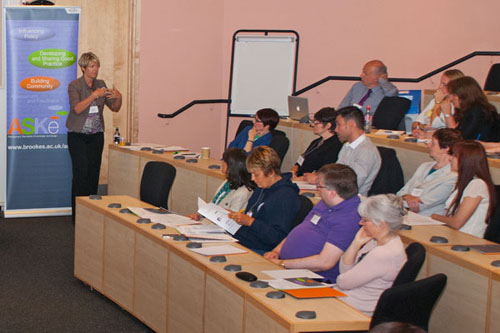
Do our children really understand the difference between what is cheating and what is not?
In general, children understand the basic concept of cheating and can thus apply that concept to different situations. However, researchers like Hartshorne & May in the 1920s and others since then have demonstrated that cheating is situational and that people can readily justify the risks of cheating. We also know from psychologists like Kohlberg that people develop moral judgment over time, so a child cannot be expected to exercise the same ethical discretion as an adult. Complicating this is technology. In Academic Integrity in the Twenty-First Century, I talk about how technology has always changed the landscape of teaching and learning. The calculator caused great fears among math teachers. Now, the internet is changing the ways in which we view information and knowledge and the ways in which students engage in school. The internet, for example, has changed cheating from a competitive sport where students try to gain an unfair advantage over one another to a student cooperative in which they seek to help one another succeed (behind the back of the teacher, of course). Despite these changes, we are predominantly teaching and assessing learning as we did in the pre-internet era. To truly address the cheating problem, we must address our methods of teaching and assessing learning.
If students’ business, sports and political role models cheat and get away with it, can we expect students not to cheat?
Of course we can (and should) expect them not to cheat. What was that old saying my mother used to tell me? “Two wrongs don’t make a right.” But in order to discourage a wrong as a follow-up to a wrong, we have to counter models of cheating with models of ethics and integrity. We also need to leverage moments of ethical failures as learning opportunities. Instead of ignoring them, we can use them to teach students about professional integrity. Our children are not raised in a vacuum–if we have a generational problem of cheating, then we must look everywhere for the causes and the solutions.
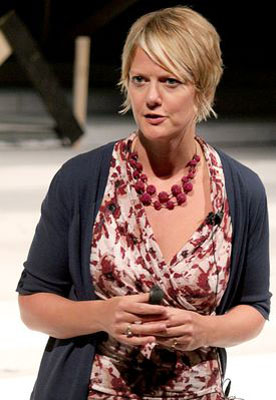
If students’ teachers, parents and peers are cheating, can we expect students not to cheat?
Again, yes, we can and should help children develop the capacity to resist cheating even if everyone else around them is doing it. If we do not, then our society (which depends on trust and personal accountability) will quickly become unsustainable. However, expecting a child not to cheat when those closest to them are cheating is a tall order; after all, these are the people who should be helping the students develop that cheating-resistant capacity! If teachers, parents and peers are cheating, then you have a systemic problem. This means, as my co-authors and I talk about extensively in Creating the Ethical Academy, that we cannot simply treat the problem as one of “individuals behaving badly” but must address it at the systems level.
Has cheating become an indelible part of our culture?
No, it has always been an indelible part of the human culture. What seems to be changing is our acceptance of, and complacency with it, both of which seem to be tied to our obsession with performance (winning at all costs) and our American individualism (what you do is your own business, not mine). There is also a prevailing false notion that “cheaters only hurt themselves” and so we let cheaters cheat. However, the stories of Bernie Madoff, subprime mortgages and the cheating scandals at Harvard and Stuyvesant High School illustrate that cheating is viral and spreads harm beyond the carrier of the virus.
How much blame can we place on standardized testing for the problems with cheating?
We have clear evidence from around the country that the false idolization of test scores and using them as rewards results in student and teacher cheating. However, it is but one puzzle piece of a systemic problem and so shouldn’t be our sole lightning rod.
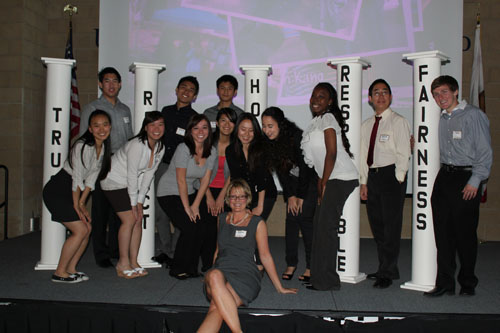
Do we believe society needs to challenge our culture’s current definition of success in order to help our children better understand why cheating leads to a precarious life and a precarious society?
Perhaps. UCLA’s Higher Education Research Institute has been surveying American freshmen for over forty years. In the late sixties/early seventies, 73% of college freshmen said that “developing a meaningful philosophy of life” was a very important goal, while “being wealthy” was only very important to 45%. These percentages have flipped for our current student generation; only 45% feel it is very important to develop a meaningful philosophy of life while 75% feel it is very important to be wealthy. This flip, coupled with performance pressures and the lack of conversations about the acceptable means by which to achieve success, is likely to lead to people willing to adopt an “at all costs” attitude.
Should ethics only be taught at home or is it time for more focus on ethics in the classroom?
We bring up this debate in Cheating in School and argue that schools have an obligation to teach students about professional integrity and ethical decision-making. This isn’t about teaching religion or indoctrinating students in what personal values they should hold true. It is about teaching students decision-making skills and preparing them for professional life, which is guided by shared standards, norms and values. Anthropological research and the International Center for Academic Integrity suggests that values like honesty, trustworthiness, respect, responsibility and fairness are fundamental and universal values, so these can guide heterogeneous organizations. Schools must also teach professional integrity by having standards of ethical conduct and holding students, teachers, parents and administrators to them. We have seen the alternative to not doing this, and it clearly isn’t working.
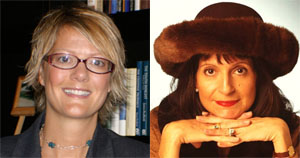
Photos courtesy of Tricia Bertram Gallant.
In The Global Search for Education, join me and globally renowned thought leaders including Sir Michael Barber (UK), Dr. Michael Block (US), Dr. Leon Botstein (US), Professor Clay Christensen (US), Dr. Linda Darling-Hammond (US), Dr. Madhav Chavan (India), Professor Michael Fullan (Canada), Professor Howard Gardner (US), Professor Andy Hargreaves (US), Professor Yvonne Hellman (The Netherlands), Professor Kristin Helstad (Norway), Jean Hendrickson (US), Professor Rose Hipkins (New Zealand), Professor Cornelia Hoogland (Canada), Mme. Chantal Kaufmann (Belgium), Dr. Eija Kauppinen (Finland), State Secretary Tapio Kosunen (Finland), Professor Dominique Lafontaine (Belgium), Professor Hugh Lauder (UK), Professor Ben Levin (Canada), Lord Ken Macdonald (UK), Professor Barry McGaw (Australia), Shiv Nadar (India), Professor R. Natarajan (India), Dr. Pak Tee Ng (Singapore), Dr. Denise Pope (US), Sridhar Rajagopalan (India), Dr. Diane Ravitch (US), Sir Ken Robinson (UK), Professor Pasi Sahlberg (Finland), Andreas Schleicher (PISA, OECD), Dr. Anthony Seldon (UK), Dr. David Shaffer (US), Dr. Kirsten Sivesind (Norway), Chancellor Stephen Spahn (US), Yves Theze (Lycee Francais US), Professor Charles Ungerleider (Canada), Professor Tony Wagner (US), Sir David Watson (UK), Professor Dylan Wiliam (UK), Dr. Mark Wormald (UK), Professor Theo Wubbels (The Netherlands), Professor Michael Young (UK), and Professor Minxuan Zhang (China) as they explore the big picture education questions that all nations face today. The Global Search for Education Community Page
C. M. Rubin is the author of two widely read online series for which she received a 2011 Upton Sinclair award, “The Global Search for Education” and “How Will We Read?” She is also the author of three bestselling books, including The Real Alice in Wonderland.



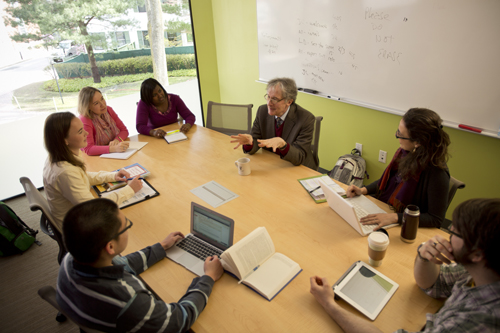
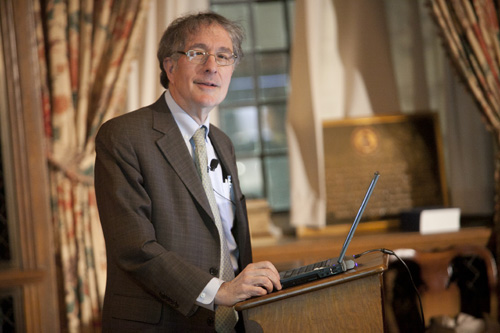
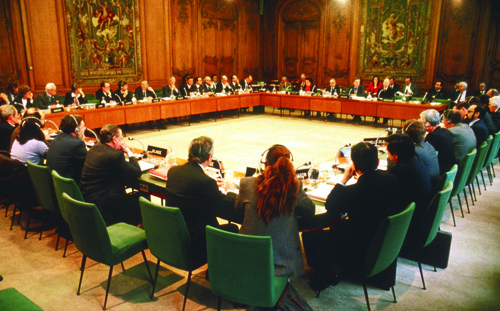
Recent Comments